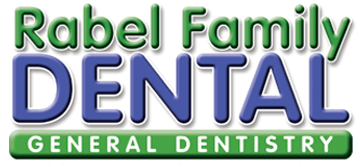This is a subtitle for your new post
Most people know the importance of brushing their teeth, but an equally important daily habit is flossing, which is often neglected. In fact, about a third of Americans report never flossing their teeth, and almost another third doesn't floss daily, even if they brush.
Flossing helps to remove the food particles and bacteria between your teeth that cannot be removed by regular brushing. Many cavities are caused because people do not floss regularly.
Understanding why these common excuses shouldn't keep you from flossing will help you make flossing a daily priority and motivate you to take better care of your teeth.
"My Teeth Have Enough Space That Nothing Gets Stuck"
Many people think that they only need to floss if their teeth of close together. However, flossing doesn't just remove food that can get caught between your teeth, it also removes bacteria that gathers around the gums in the gap between your teeth. Eventually, your gums can become inflamed or irritated because the bacteria will begin to attack the soft tissue.
Your toothbrush is not precise enough to guarantee the gaps between your teeth will be thoroughly cleaned, which is why flossing is so important.
"My Teeth Are Too Close Together to Floss"
Similarly, some people also think they don't need to floss because their teeth are too close together. It can be more challenging to get floss between your teeth when they are crowded, but it's still essential. If you can't use traditional floss to fit between your teeth, you can get a special string that is thinner and slicker than woven floss.
"My Teeth Bleed When I Floss and Flossing Hurts"
Flossing can be uncomfortable, but when it causes a lot of pain and bleeding, this is a sign that your gums are already getting infected by bacteria. Bleeding and pain when brushing and flossing are the earliest signs of gum disease and you can still recover before it progresses to permanent damage.
Continuing to floss regularly is the best solution when your gums bleed during flossing.
"I'm Too Busy to Floss"
If your morning routine is so busy that even brushing your teeth before you head out the door is a challenge, you might forget to floss for several days in a row. However, flossing does not always have to be done when you brush. It is better to floss at another time than to not floss at all.
Keep a packet of floss or floss picks in your bag or purse so that you can floss when you have a lunch break when you're stuck in traffic or even when you're using the bathroom at work. If you rinse your mouth with water and floss after eating you'll keep your teeth free of food particles.
"My Teeth Are Too Difficult to Floss"
Finally, some people do not floss because it is difficult. Flossing requires dexterity and finesse, so children, elderly individuals or people with disabilities can struggle with flossing. If you have trouble flossing, your dentist can recommend alternatives that can help you get your teeth clean, including:
- Water flossers. Instead of string, these flossers spray water between your teeth.
- Floss picks. Floss picks are easier to use, especially for children who might have trouble holding a string tight.
- Small brushes.
These brushes are sometimes called soft picks and are small enough to fit between your teeth.
Combined with mouthwash and brushing, your teeth should be healthy no matter which flosser you use. Your
dentist
can offer you many flossing alternatives should a health condition or challenge keep you from using traditional cleaning methods. For more information, contact us at Rabel Family Dental General Dentistry.







